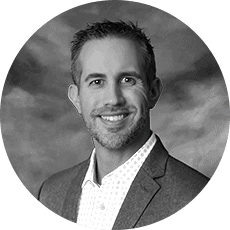The Legacy Software Stranglehold: How to Break Free, Shrink Costs, and Do More with Less – Part 2

Part 2 – Eliminating Data Silos and Bringing E&P Workflows Together in the Cloud
W Energy Software has teamed up with the Novus Consulting team to bring their voice of authority to the upstream oil & gas C-suite. Through this blog series, we’re going to talk candidly about the lack of innovation in the back office, and why old legacy technology is holding upstream companies back – just as much as an entrenched mindset and culture of doing things the way they have always been done. Some leading organizations are afraid of making the change that will ultimately allow them to operate more efficiently, build business resilience, and unleash the potential of their workforce, by eliminating the data and cultural ‘silos’ that are holding them back. They are choosing instead to maintain the status quo, and kick the can down the road exposing them to the risk of being at the mercy of market fluctuations, and of being out-performed by their peers who have modernized their accounting, land, and production systems. In this blog series, Chevy Thomason, a founding partner at Novus Consulting, discusses how to navigate and close the widening technology chasm with unified upstream solutions built on the cloud, and even more importantly how to navigate change, and create a data-driven culture that will increase business performance, unlock agility, and save your team millions.
By Chevy Thomason, Founding Partner at Novus Consulting
In the digital oilfield, your choice of software impacts every facet of the upstream enterprise, from production operations, land administration, and accounting, to employee satisfaction and your supply chain. Yet poorly integrated and aging applications can cost mid-sized oil & gas companies up to $900,000 a year on duplicated processes, data loading, manual reporting, and data clean-up. On the other hand, a modern and unified SaaS technology stack can free up over 8,000 hours of manpower a year on average; saving an eye-popping $600,000 annually for a mid-sized E&P.
If big numbers like that aren’t enough to convince you to upgrade your back-office software, then I encourage you to read my first blog in this series where I examined why many E&P’s are resistant to change, the price of doing nothing, and the 7 signs that your team is ready for business transformation. Today, I’m delving into the nuts and bolts of what the solution looks like when you are ready to take advantage of modern oil & gas software, what to avoid, and what to look for. I’ll follow this post up with data management best practices, and the top strategies for starting and sustaining digital oilfield transformations.
The Fragmented Nature of Oil & Gas Software Today
Cutting checks to interest owners is a common challenge for every E&P. Right now, how well does your current land management solution handle a drilling-delay rental clause or shut-in? Let’s rephrase – how easy is it for your team to process these types of special payments? Chances are, getting those obligations paid can be a fire drill. The #1 reason is poor or no integration between leases and revenue division of interest – providing no immediate way to know who on the DOI (Division Order Interest) is associated with the lease-specific payment.
This lack of integration between related workflows – lease administration, division order, and revenue accounting – is just one small example of the fragmented nature of today’s oil & gas information landscape. I see the schism time and time again at nearly every E&P I work with, from land and accounting to production and regulatory. The result are data silos that stand in the way of the free flow of business-critical data, and strategic and tactical decision making. No one is to blame, per se, the information landscape evolved this way organically over decades fractured by the belief that niche, best-of-breed solutions are the answer to each department’s challenges, thereby trading the benefits of a unified, comprehensive approach for a highly specialized solution. But the results have been messy and expensive, requiring E&P’s to build and maintain brittle integrations at best, or resort to manual data shuffling and duplicated effort at worst.
There have been attempts to combine related workflows into a single solution before, such as the handful of revenue accounting and lease administration software packages on the market. But the problems include: 1) the scope is still too narrow, revenue and land still don’t play well with division order, production accounting, financials, or field operations, and 2) the technology is old, leaving users with poor acreage reporting, slow processes, and other limitations, not to mention the licensing costs. What E&P’s need, is a complete upstream solution built with modern technology.
The Cloud as Hub for Applications and Data
Whether public cloud (data and apps are stored securely outside your firewall) or private cloud (everything is inside the firewall), cloud computing provides the perfect foundation on which to build solutions for the energy back office. Unlike the traditional on-premise approach to maintaining servers and software, cloud solutions can be built around a common and consistent database, which in turn eliminates data silos. Combined with a unified application architecture, land management, accounting, and production workflows become inherently integrated while creating new opportunities to automate, streamline, and accelerate business performance.
Circling back to my example around land administration and revenue accounting, because a unified upstream ERP or software suite provides seamless integration between agreements and division orders, DOI NRI (Net Revenue Interest) and/or GWI (Gross Working Interest) can be instantly matched to its lease. The result is a crystal-clear view of chain-of-title and the assurance that payments are being issued to the correct and current parties on the lease.
Consider the possibilities if your team could instantly link all related datasets together – such as linking wells, well pads, and leases to their associated vendors, purchase orders, and contracts. Layer on business process automation tools for routing and approvals and the processing efficiencies for AP invoicing accrue profound time and cost savings.
A unified application and data architecture can also bring real-time SCADA and measurement data into production accounting, informing operational decision-making with up-to-date field data, volumes, and well status. What’s more, with production data feeding your accounting systems, your team can avoid problems with revenue disbursement, including prior period adjustments, reversals, and rebooks.
Checklist: Know what to Look for in Your Upstream Software
Choosing the right oil & gas software for your team can be complicated, time-consuming, and even confusing as some software vendors offer multiple flavors of the same type of software, e.g., land management software (this is a result of acquiring different companies for the sake of simply growing revenue). However, by ensuring your vendor meets the following 5 criteria, your team will spend less time, money, and frustration evaluating oil & gas software options and more time on putting the technology to work:
- Unified application architecture provides a single database and consistent user interface for core upstream functions, including accounting, land management, and production.
- Out-of-the-box dashboards and self-service reporting eliminate costs and increase productivity vs. one-off custom reports.
- Explicit workflows, approval routing, and audit trails automate processes, including AP, purchase order, and revenue disbursement.
- Master data management capabilities for creating a single version of the truth, and enforcing data standards across functions, e.g., well status.
- Cloud-based applications and a true SaaS experience ensure upstream workflows are running on the latest technologies.
 |
Chevy Thomason has over 17 years of experience in data & information management, spending 15 years with Chesapeake Energy, building and expanding enterprise data management disciplines. During his time, he held various positions from Director – Well & Facility Information Management to Advisor – Enterprise Data Strategy where he was responsible for developing and expanding a data management footprint allowing data to be turned into valuable and trusted information. |